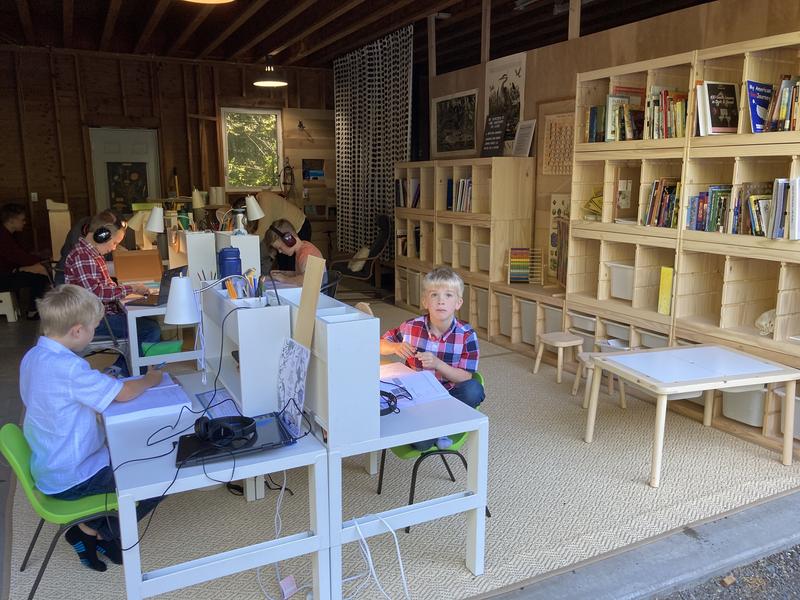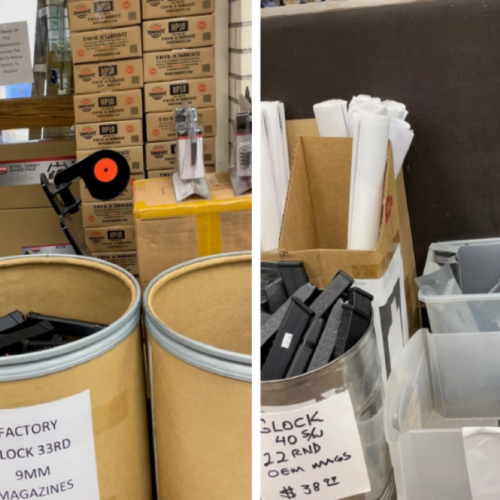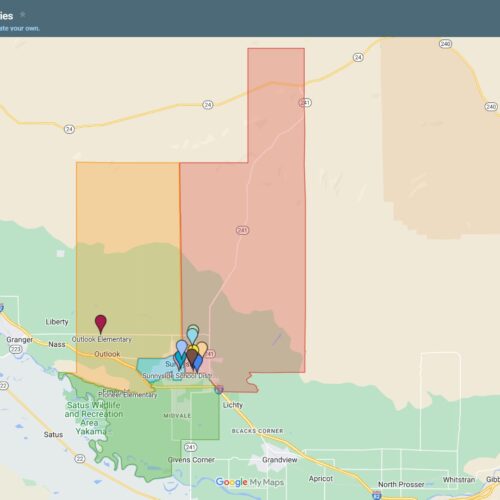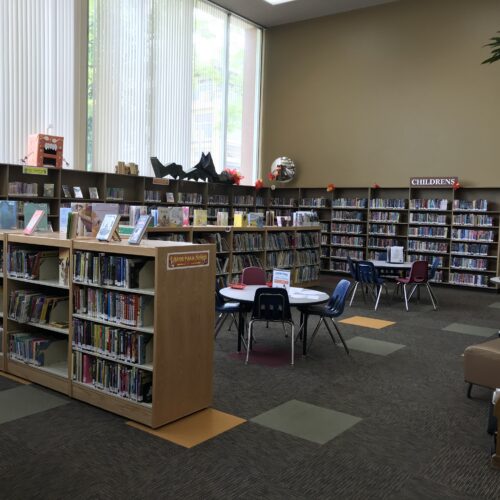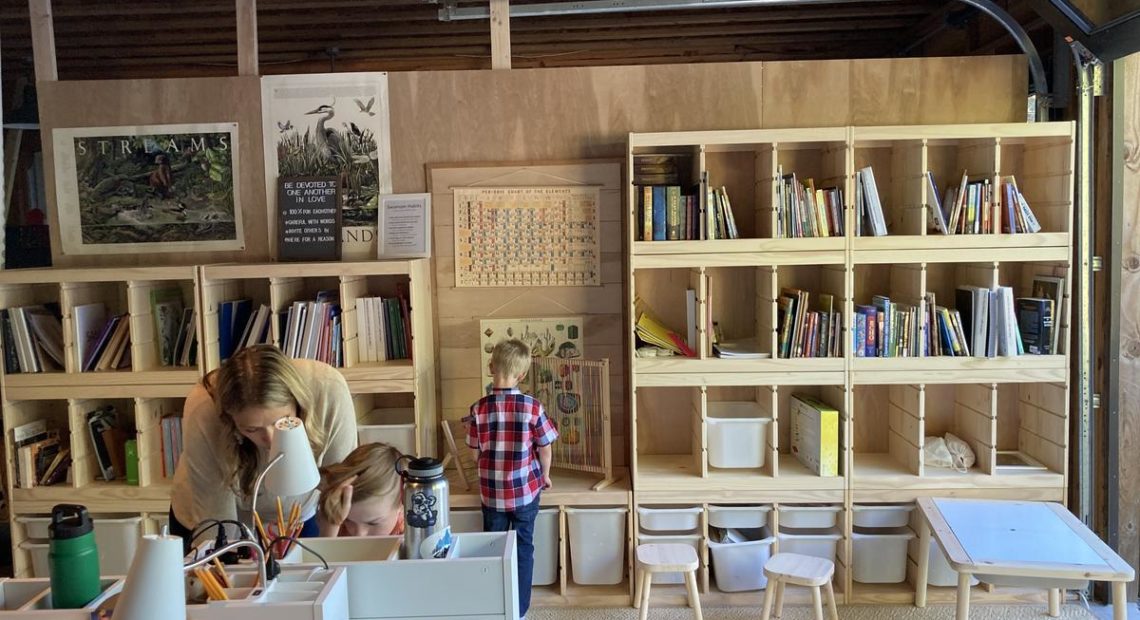
For One Olympia Family, Going Back To School Means Rolling Up The Garage Door
Listen
It was common through the 1800s for American school children to attend a one-room schoolhouse. In 2020, in the midst of the coronavirus pandemic, the Swanson family in rural north Olympia will attend a one-garage schoolhouse.
On a recent morning, Molly Swanson rolled up her garage door and welcomed a visitor into the classroom she and her husband created this summer as a place to educate four of their six children, plus two foster children.
“I call ourselves the Swallowtail Academy of Brilliant Boys,” Swanson said.
Yes, they’re all boys in grades ranging from first to eighth.
Swanson also has a preschooler and a 16-year-old who’s doing the Running Start program this fall through the local community college.
Not so long ago, Swanson’s garage looked like many garages.
“It was just a hot mess of junk,” she said.
But now it’s been transformed into an Instagram-ready classroom. There are Ikea desks and bookshelves, cozy rugs and curtains. Swanson and her husband Matt decided to convert their garage into a classroom after coming to a realization: remote learning through their local school district simply wasn’t going to work for their family.
“We’re one family, but our family highlights a lot of the problems that other people have,” Swanson explained.
For starters, the size of their family makes things complicated. Last spring, when school moved online, Swanson calculated that between all of her kids they had 32 Zoom meetings a week. It was overwhelming to keep track of and it revealed another problem many families face – unreliable internet service.
“There just wasn’t a way for us all to be [on] the internet at the same time,” said Swanson.
There were other issues too. For instance, one of their foster kids has an eye condition that makes it hard to use a computer screen. He was wracked with headaches after a day on the computer.
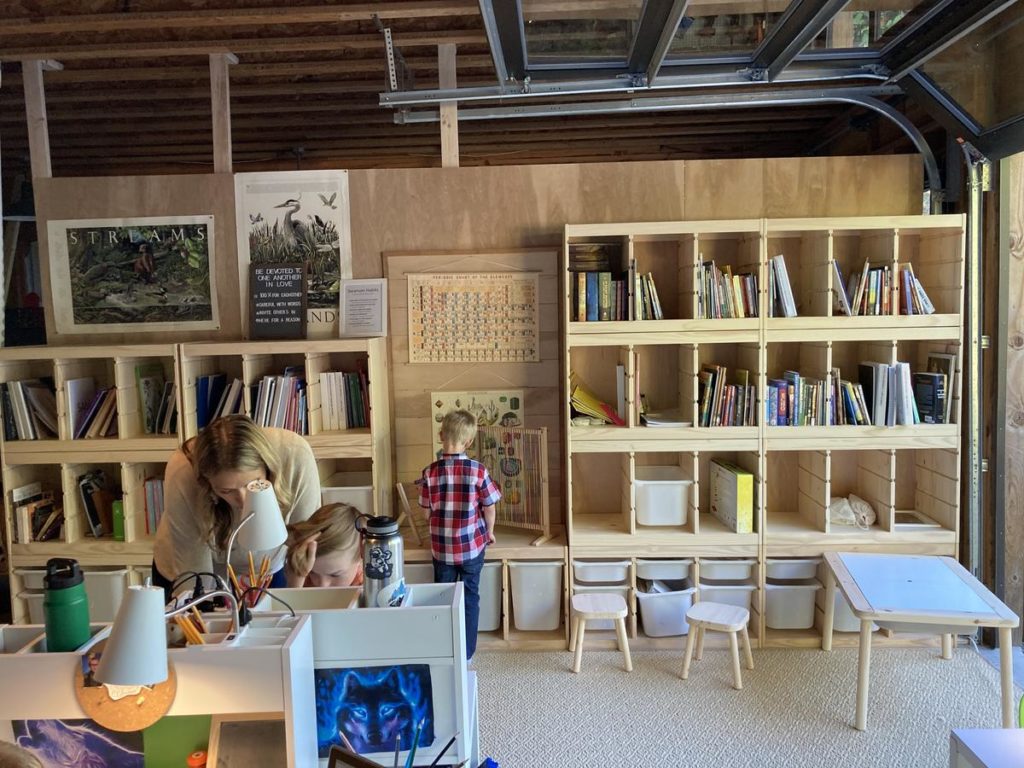
A few Ikea shelves and desks, rugs and a temporary plywood wall is what it took for the Swanson family to turn their garage into a classroom for four of their six children, plus two foster children. CREDIT: Austin Jenkins/N3
As the issues piled up, and with the start of a new school year looming, the Swansons made a decision. Instead of doing remote learning, they would homeschool their own kids — something they’ve done before — and enroll their foster children in a school-district supported home-schooling program.
“The more we thought about it, the more we understand that for the kids’ education this is what we got to do,” said Matt Swanson, who calls himself the principal of Swallowtail Academy.
But the Swansons are also quick to acknowledge they have advantages that other families don’t. First, they had the extra space to create a classroom. Also, both parents work from home and Molly is able take paid leave from her job for the next 12 weeks under the Family and Medical Leave Act. After that, she plans to hand off the teaching to their child care provider who has an education background.
“Not everybody has that,” Swanson readily admits.
Olympia public schools start on September 7, but Swallowtail Academy opened a week early so Swanson could work out the kinks.
“We learned that we need snacks in the morning, because everyone was starving by lunchtime,” Swanson said.
On a recent morning, Swanson moved about the garage classroom helping the younger kids with math and their letters. In the back, the middle schoolers worked mostly independently. Sam, one of Swanson’s foster kids, said so far he’s liking this better than regular school.
“It’s just easier to get our work done because there’s more distractions in public school and there’s less here,” he said.
Across the divider Caleb, an eighth grader, agreed. But he also said he’d like to be back in school.
“If there wasn’t this virus thing, I would probably go back just because friends and stuff like that,” he said.
Swanson doesn’t know how long she’ll be running Swallowtail Academy out of her garage. But she acknowledges this will test her patience and fortitude – it already has.
“You know, I’m a pretty good parent until 2 p.m. and at 2 p.m. it’s like I run out of my emotional reserves and I become irritable,” Swanson said.
That’s the point at which she ends the school day and tells the kids to go play outside.
Related Stories:
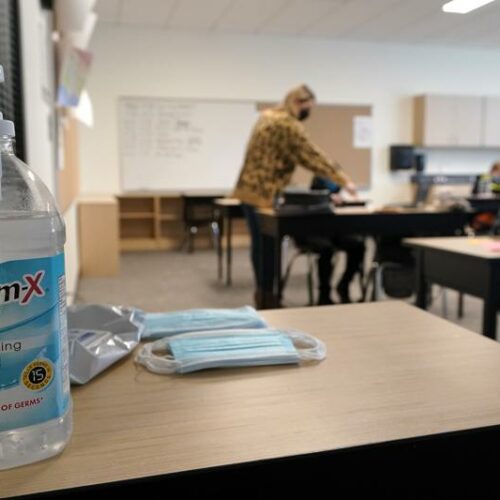
State Says All Washington Public Schools Must Open In Full For Fall, With Masks Required
Washington authorities said Thursday all schools in the state must provide full-time, in-person education for students for the 2021-22 school year and that students and staff will still be required to wear masks. Continue Reading State Says All Washington Public Schools Must Open In Full For Fall, With Masks Required
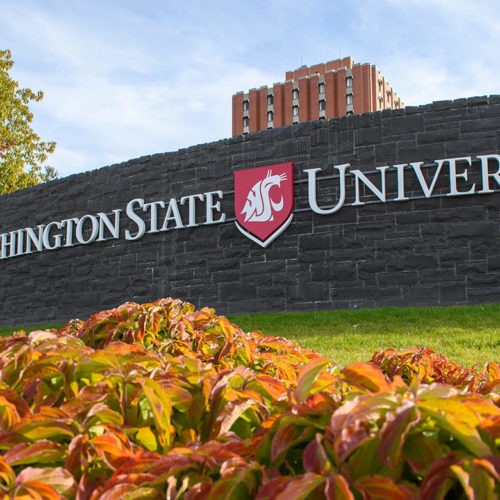
Context And Clarity On WSU’s Fall 2021 COVID-19 Vaccine Requirement
WSU’s vaccine requirement comes with some major exceptions. Medical and religious exemptions have existed for vaccinations on campus for decades, but this time around, WSU is adding a “personal exemption,” and following that announcement, provided some clarity on exactly what that means. Continue Reading Context And Clarity On WSU’s Fall 2021 COVID-19 Vaccine Requirement
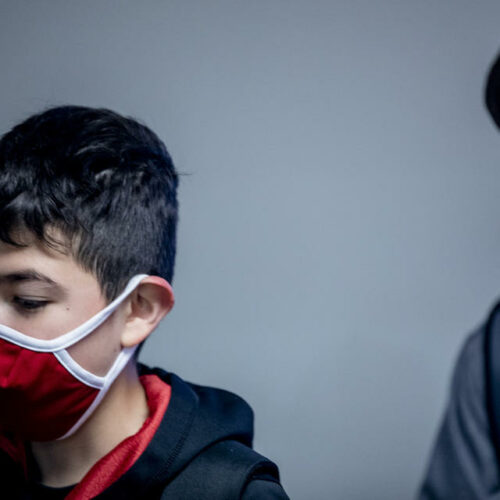
Some Washington School Districts Are Depending On Federal Relief Money To Pay For Reopening
Without emergency hires, the Moses Lake School District would not have the staffing necessary to comply with the Washington State Department of Health’s reopening guidelines, according to district Superintendent Dr. Joshua Meek. They are essential to the district’s reopening, he said. Continue Reading Some Washington School Districts Are Depending On Federal Relief Money To Pay For Reopening

